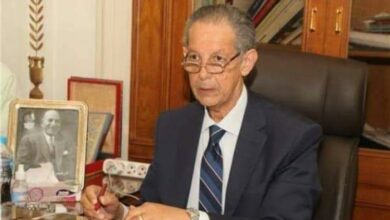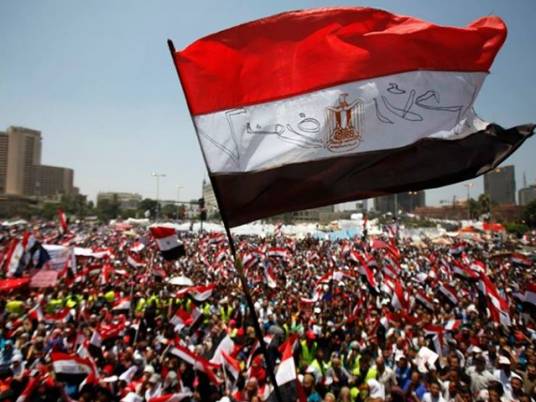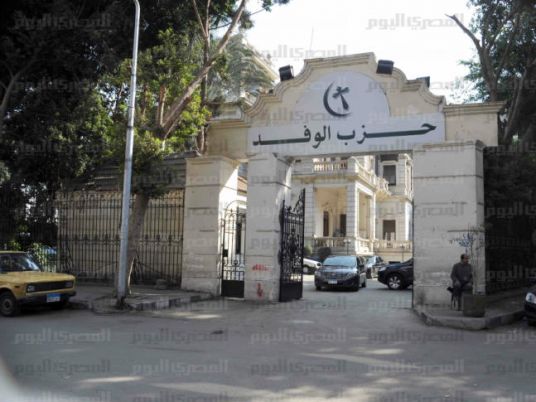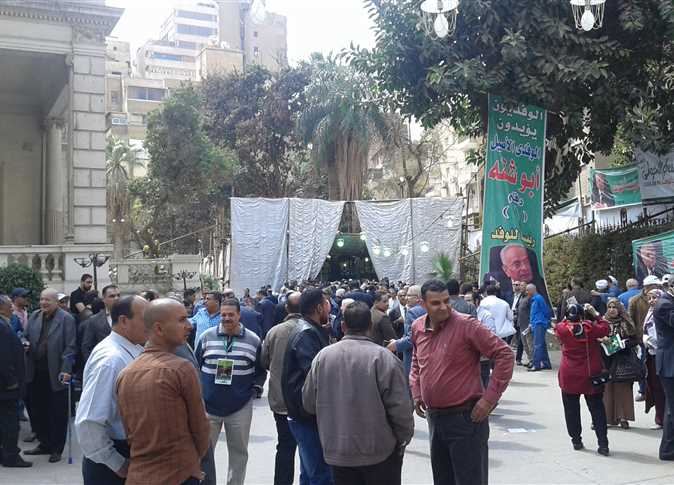After surviving three decades of oppression under Mubarak’s regime, Egypt’s traditional, state-approved opposition parties are now struggling to adapt to the rapidly changing political scene, facing internal conflicts and competition from over a dozen emerging parties.
During Mubarak’s rule, opposition parties were used by the regime to give the appearance of democracy, even though they had little real influence. Some parties were accused of collaborating with the regime, while others suffered the consequences of standing up to it.
All are stigmatized by having failed to act as an effective opposition.
“They agreed to play the role of extras for a long time, so they lost their value,” says Emad Gad, a researcher at the Ahram Center for Political and Strategic Studies,
Gad expects newly formed parties to dominate in the coming parliamentary elections scheduled for September. Old parties, he says, will only win a small percentage of the seats because they have failed to develop themselves in order to cope with the post-Mubarak political scene.
What's more, dangerous internal divisions are appearing as a result of conflicts over policy between party leaders and members.
The leftist Tagammu Party’s collaboration with the Mubarak regime since the 1990s is still fresh in the public’s mind. The party announced its support for Mubarak’s ruling National Democratic Party in the 2010 parliamentary elections and was the only opposition party that explicitly rejected calls for the 25 January protest that led to the national uprising.
The party also suffered a severe rift recently when a number of its most prominent members defected in response to what they call the party’s collusion with the fallen regime and their disapproval of the policies of the party’s president. Those who defected started a new party in February, the Popular Coalition Party.
Hussein Abdel Razek, a member of Tagammu’s presidential council, says that his party is in need of drastic changes in both policies and leadership. However, he says that such changes will emerge from the party’s general meeting in June.
“I am betting on the Tagammu Party’s ability to achieve successes in the near future, assuming it can successfully implement its new political and organizational line as planned, and assuming its elections produce new leaders that are capable of implementing this plan,” says Abdel Razek.
The most important change, according to Abdel Razek, is that the party should once more take strong positions on issues, refraining from making concessions that oppose its principles.
Many incidents in recent years have confirmed suspicions of a deal between the liberal Wafd Party and the National Democratic Party, tarnishing the image Egypt’s oldest political party, which dates back to Egypt’s post-WWI anti-imperialist movement.
In 2010, Wafd President Sayyed al-Badawy bought the opposition newspaper Al-Dustour and fired its editor-in-chief and founder Ibrahim Eissa, known for his criticism of Mubarak’s regime. The move is believed to have been part of a deal that the party made with the NDP to secure seats in the 2010 parliamentary elections.
“The Wafd Party isn’t just facing challenges. It is living in a state of failure that started before the revolution, continued throughout the revolution and is still ongoing until now,” says party member Khalil al-Awamy.
Awamy is one of the founders of the "Wafdists of 27 May" group, a group that was established within the party recently following its executive committee elections, which crystallized the party’s internal divisions.
The dissident group, comprised of 11 coordinators in 11 governorates, is calling for early presidential elections within the party, before the schduled date in 2014. They are also calling for the recent executive committee elections to be declared null and void due to corruption.
Awamy says that the party’s position during the uprising harmed its image. Until Mubarak’s resignation, he says, the party was trying to balance support for the uprising with the maintenance of good relations with the regime, in case it succeeded in holding on to power.
“The political scene is now moving very fast and the Wafd is almost completely out of the picture,” said Awamy.
He believes the party has a chance of reforming itself before the upcoming parliamentary elections; if it fails, it will be pushed out of the political scene forever.
But Mohamed Sarhan, the party’s vice president, dismisses the current divisions as no more than the expected aftershocks from the earthquake of the revolution. He says he is confident that the party, which intends to contest every seat in parliament, will be able to perform well in the elections.
A recently released poll by an international polling firm suggested that the Wafd Party is could win 9 percent of votes.
Another liberal party is also facing challenges. Gabha Party President Osama al-Ghazaly Harb tried to strengthen his party by merging it with five nascent liberal movements. This backfired when the liberal coalition was thrown into turmoil when members blamed Harb for dictating the party’s moves and positions without consulting the membership.
The discontent over Harb’s decisions led to the resignation of the party’s secretary general, Ibrahim Nawara, and spread to the party’s members throughout the governorates, some of whom are threatening to resign.
“I wouldn’t have resorted to this measure if we weren’t at a stage where a fast rescue operation were needed. The party is deteriorating very fast now,” says Nawara.
Party members complain of Harb’s monopoly on decision making. Harb has recently declared strategic decisions, such as the party’s support for Mohamed ElBaradei as a presidential candidate and the decision to contest 50 percent of the parliamentary seats without consulting party members.
In an indication that the maladies of the fallen regime might have rubbed off on the opposition parties that co-existed with it, Nawar says that the “gang mentality” that Harb is adopting endangers the future of the party, claiming that Harb and his associates are attempting to hog all the power for themselves.
Gad says that the appearance of internal turmoil in opposition parties following Mubarak’s downfall is not entirely by chance. He attributes this to the social rule that states that groups should stick together when they are fighting against a unified threat, but that their differences surface once the threat disappears.
Some parties who suffered from harsh treatment by the Mubarak regime due to their openly confrontational stances are in a better position, even though they still face the challenges of new competition.
“The Ghad Party was confrontational and courageous in its positions against the regime, and we have nothing to be afraid of like the other parties. We have an honorable past,” says Ayman Nour, the president of the liberal Ghad Party.
Nour served four years in prison on charges of forgery that many believe were cooked up in response to his presidential bid in 2005.
The Karama Party, which adheres to Nasserist principles, meanwhile, is set to present its papers to become an official party in two weeks. Though the party has been around since the 1970s, this will be the first time it has had an official status.
Members of the party, though, think that their battles with the old regime will empower them as the country transitions to democracy.
“The public is looking for a CV and credibility, and the party has all that,” said Amin Eskandar, a founding member of Karama.
In a recent poll by the Washington-based International Republican Institute, 6 percent of Egyptians said they would vote for the Wafd party in the upcoming parliamentary elections, while the Ghad and the Tagammu Party received 1 percent of votes. The majority, though, 65 percent, said they were undecided.
With numerous new parties appearing on the scene, many experts are dismissing the old opposition parties as obsolete. Meanwhile, within those same old parties desperate calls for change are being heard, while party leaders affirm confidently that their experience gives them an edge over the newcomers.
Just who will emerge as the key political forces of the post-Mubarak era will be become clear after the parliamentary elections set for September.




